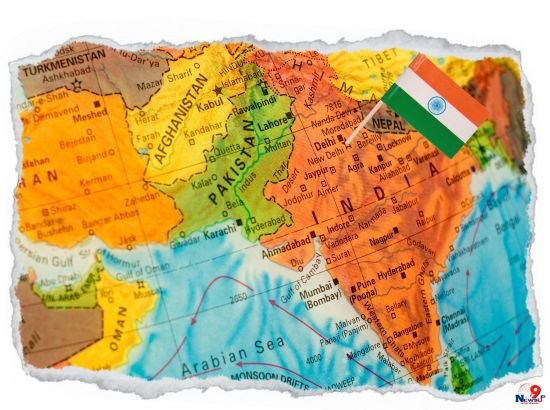
India’s unique geography and social structure have long positioned it as a nation constantly navigating dual threats: hostile neighbors across its borders and ideological friction within. However, today, this two-pronged challenge has evolved into a three-front battle. It is not just Pakistan and China anymore — internal forces, weakening national unity from within, now pose an equally serious threat.
On April 22, 2025, a terrorist attack in Pahalgam, Jammu and Kashmir, claimed the lives of 26 innocent tourists. This was not merely an act of violence, but a psychological assault aimed at spreading fear and instability. While the government’s policies can be debated, the current counter-terrorism strategy, which blends restraint with response, is rooted in a calculated national vision.
Just days after the Pahalgam attack, a new conflict erupted — this time between Punjab and Haryana over water sharing from the Nangal Dam. Punjab blocked water flow to Haryana and deployed police to assert control. This wasn’t just an administrative move; it struck a blow to the federal spirit of the Indian Constitution. When states clash in moments of crisis, it endangers the foundational unity of the nation.
India’s first Chief of Defence Staff, General Bipin Rawat, once said that the country must fight on “two and a half fronts” — against Pakistan, China, and internal ideological conflict. This “half front” isn’t fought with weapons, but with words, media, courts, and political platforms. When state leaders or political figures challenge national unity under the guise of regional politics, this internal threat only deepens.
The core issue is no longer whether Punjab will release water to Haryana. The real question is: Can one state stand in opposition to another during a national crisis in a federal system? The Nangal Dam blockade has exposed the cracks in India’s federal political framework, shaking the democratic foundation that holds the Union together.
Today, India is cornered from both sides — by external terrorism and internal divisions. In such times, public faith increasingly turns toward Prime Minister Narendra Modi, as many believe that strong leadership is essential to preserve unity. Opposition to Modi has become more emotional than rational, reflecting the polarized political climate.
The Punjab-Haryana water dispute is more than a matter of resource distribution; it is a direct hit on India’s constitutional federalism. When leaders choose confrontation over cooperation, especially in crises, they inadvertently fuel internal fragmentation.
A section of society — intellectuals and media voices that once rallied for farmers and students — are now silent on the issue of water. This silence reflects a part of the ideological front, where instability is sometimes favored over order. It raises concerns about selective activism and inconsistent accountability.
The real soul of India lies in its common people — farmers, workers, shopkeepers, soldiers, teachers — who yearn for unity, not division. They want neither war at the borders nor conflict within. Their desire is simple: peace, cooperation, and national progress.
Strengthen federal dialogue between states during times of crisis.
Identify and counter ideological polarization that threatens national integrity.
Reinforce patriotism and unity through civic responsibility and institutional action.
Today, India is not just fighting enemies across its borders but is confronting internal divisions and ideological rifts. The Pahalgam terror attack and the Nangal Dam water dispute are stark reminders that the greatest threat to India’s unity may now come from within. This is a critical moment that demands vigilance, responsibility, and renewed commitment to unity, trust, and the federal spirit of the Indian Republic.